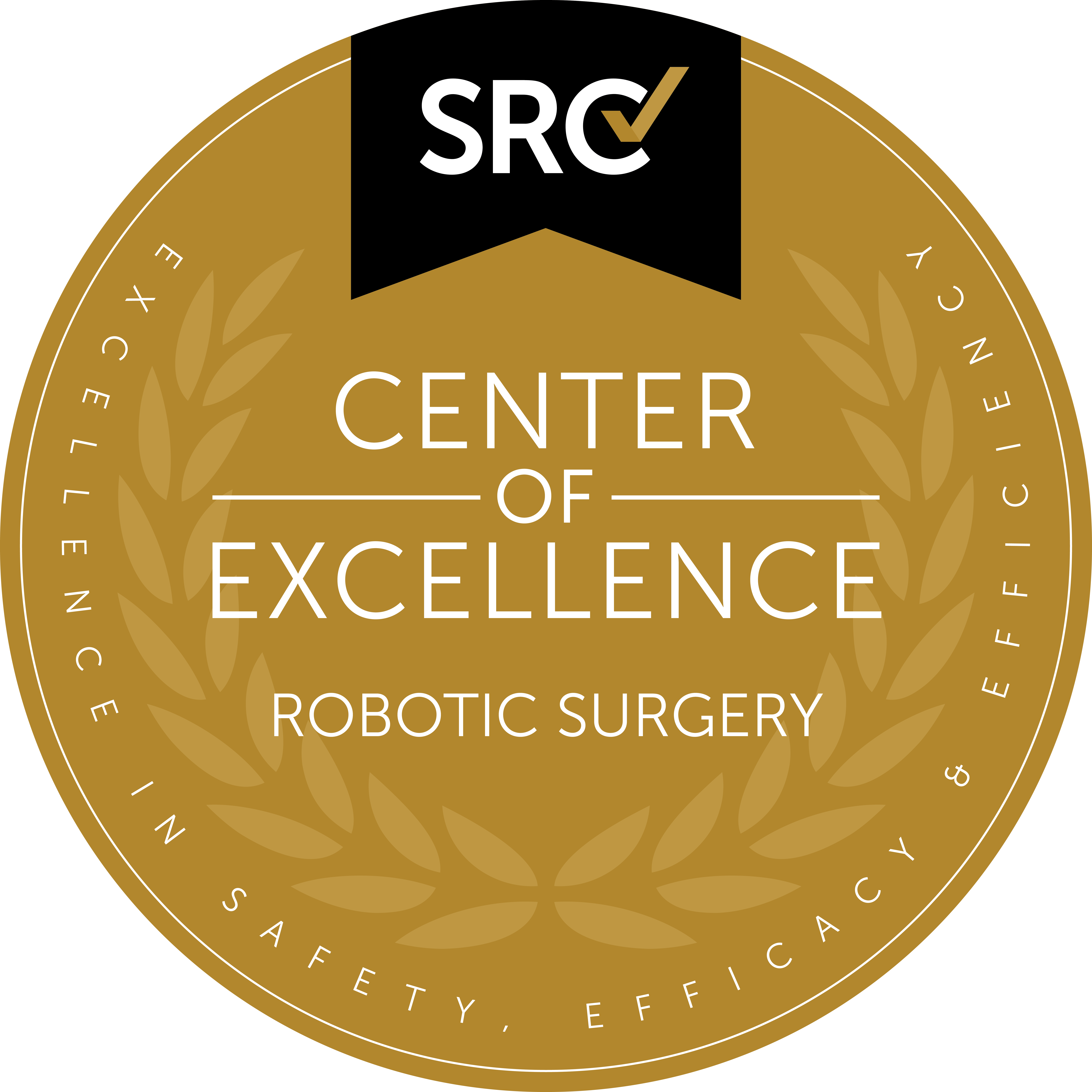There are multiple kinds of surgery for colon cancer and rectal cancer. Low anterior resection, also called LAR, is one type of surgery used to treat colorectal cancer.
What is a low anterior resection?
A low anterior resection is considered rectal resection surgery. During this procedure, a colorectal surgeon removes the diseased portion of the rectum, along with a small amount of healthy tissue surrounding it. Nearby lymph nodes may also be removed for testing.
The remaining parts of the rectum are then stitched together and reattached to the colon. Some other types of colorectal surgery detach the colon from the rectum, making it necessary for a colostomy—where the top end of the colon is attached to an opening in the abdomen. Because these two components of the digestive system are reconnected in a LAR procedure, a permanent colostomy is not needed.
In some cases, to allow the rectum time to heal following a lower anterior resection and other cancer treatments, a temporary opening called an ileostomy may be created. An ileostomy can be reversed and the intestines reconnected after healing.
When is a low anterior resection needed?
Surgery is the most common treatment for rectal cancer, where cancer affects the lower part of the large intestine as it connects to the anal opening. While less invasive procedures such as polypectomy or local excision may be possible in some cases, lower anterior resection is recommended when cancer has spread into the wall of the rectum.
LAR may be used as a standalone treatment for rectal cancer, or it may be performed in combination with other cancer therapies. Both radiation therapy and chemotherapy may be given either as neoadjuvant therapy before surgery to reduce the size of a tumor or as adjuvant therapy to kill off remaining cancer cells after surgery.
Is robotic low anterior resection right for me?
Low anterior resection has typically been performed as a traditional, or open, procedure. This type of procedure accesses the rectum through incisions in the abdomen and is performed inside the body using the surgeon’s hands.
Today, many patients can benefit from minimally invasive LAR, including robot-assisted low anterior resection in some cases. During a robotic LAR, a specially trained colorectal surgeon accesses the rectum through tiny incisions and performs the surgery using a console to guide robotic hands.
Minimally invasive LAR can benefit patients in many ways, offering reduced bleeding, less risk of complications, and a quicker recovery. While not every patient is a candidate for a minimally invasive or robotic procedure, it’s increasingly an option for many patients.
Center of Excellence
At NGMC, we’re committed to innovating in the field of colorectal surgery. Our team of colorectal surgeons offers minimally invasive procedures as the standard for the surgical treatment of colon and rectal cancer.
Because of that, we far exceed the national ratio of minimally invasive surgery vs. open surgery procedures for treating these diseases. This provides our surgeons and other clinicians with a level of expertise and experience that benefits each of our patients.

Patients undergoing colorectal surgery, including lower anterior resection, often require other services to treat cancer and maintain quality of life. At NGMC, you can access the full spectrum of care you need, including advanced treatment options and support services.
This year in the state of Georgia, nearly 5,000 new cases of colorectal cancer are expected to be diagnosed. Many cases of colon or rectal cancer are discovered in an early stage, when they can be removed either during a colonoscopy or in a follow up surgical procedure.

